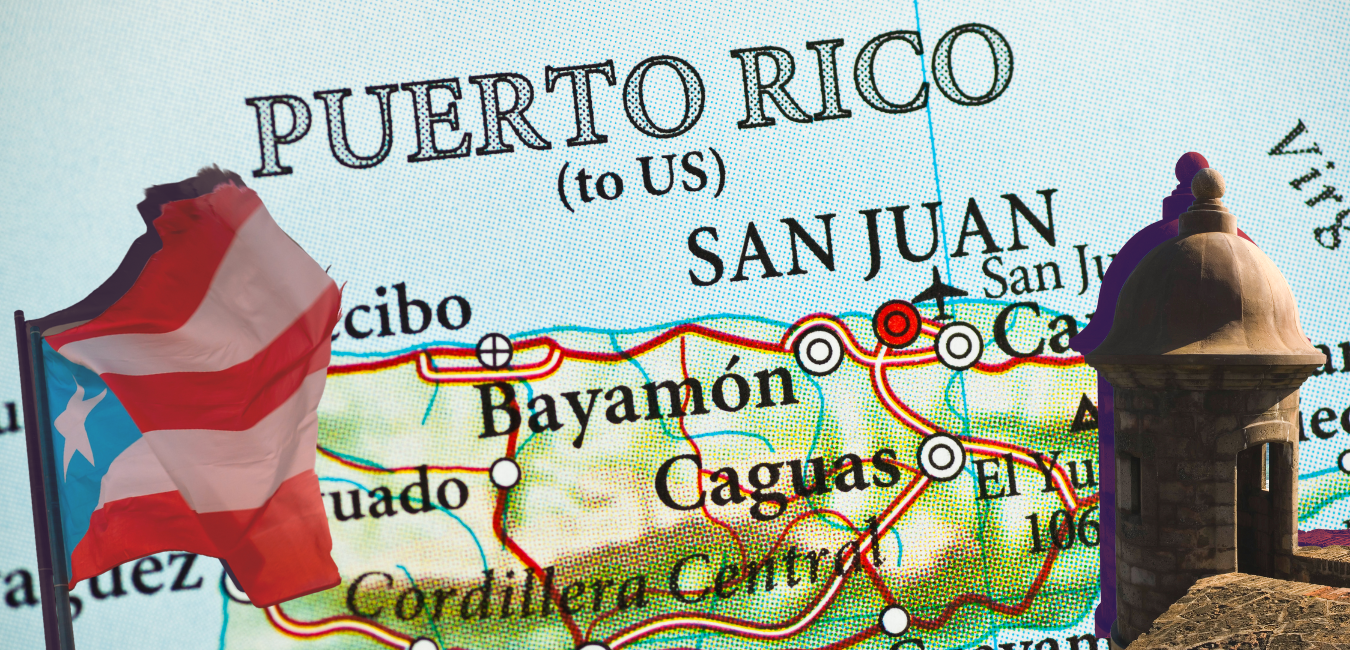
Since 2017, Puerto Rico has made headlines in ways I never anticipated. Growing up Puerto Rican in Florida, in a very white-centric community, I never thought I’d see the day when my beloved island would be known to anyone outside of the pockets of Puerto Rican communities in the United States (think of your New York “Nuyoricans”).
Fast forward to 2022, and the reaction to my being Boricua is unlike anything I ever anticipated; where before many would simply nod and move on, clearly not knowing about the island, I now get excited replies proclaiming, “I love Puerto Rico!”
This different reaction, in many parts, can be credited to the release of popular songs like “Despacito” by Luis Fonsi, who reintroduced Spanish-language music to mainstream audiences. Another event that brought Puerto Rico to the forefront of national news was the horrific catastrophe that was Hurricane Maria, a tragic storm that resulted in thousands of deaths and brought to light not only the lack of resources on the island, but also our status as a modern U.S. colony.
The storm had Puerto Rico receiving aid in so many ways, and with that, so much attention I never thought our small island would ever get. After Hurricane Maria, there was a sharp rise to fame of Bad Bunny (everyone’s favorite reggaetonero). Additionally, the protests against Governor Ricardo Rosselló that ultimately resulted in his ousting, continued to put Puerto Rico on the news. It was evident that Puerto Ricans were fighting back and not only claiming their national identity but doing so with gusto.
🗣 @sanbenito joins the protests against Puerto Rico Gov. Ricardo Rosselló after leaked text messages revealed homophobic and sexist slurs. #RRickyVeteYa
— Complex (@Complex) July 17, 2019
Listen to the freestyle he dropped speaking out against the governor: https://t.co/Bu2Oq0UDHW pic.twitter.com/PbRHE2t0Cw
The Latine community has always been proud of its culture, traditions, and more. However, that pride has always shown itself in a variety of ways, some not always good for us. For many years, the culture around being Latine was one that acted in service of being a “good example” of the community to others. Meaning that you needed to be quiet, respectful, and not too opinionated, since that would quickly get you branded as “difficult” or “aggressive.” On the flip side, many have always felt comfortable identifying us as stereotypes, with cartels or toxic femininity defining us, which we know is more often nonsense than reality.
Now, I firmly believe that Boricuas (the term for native Puerto Ricans derived from our Indigenous Taino name Borinquen) have been the leaders of much of the change in owning our Latinidad unapologetically, not to mention in also advocating for our Latine families from other countries. One thing I remember my parents always instilling in me was my identity as Puerto Rican, simply phrasing it as, “Who isn’t going to know you’re Latina, mija? Look at your last names alone. It’s who you are, in your blood.”
Puerto Ricans differ from many Latines in the United States given how we are born citizens due to the Jones Act. The Act is a political agreement that gives the United States control over maritime trade domestically and is one that still controls how the island trades internationally. This results in continuously keeping our economy and legislative activities at the constant mercy of the U.S.
With the recent unrest in Puerto Rico centering around everything from gentrification making rents skyrocket, the new Ley 22 favoring wealthy foreign investors that are exempt from paying tariffs, and now the open criticism against LUMA, the constant failing power company the government privatized post-Hurricane Maria, Puerto Rico is not only a leader in culture and vibes, but of representing what it looks like to fight back, to reclaim our space, and to make strides in modern Latinidad.
There’s an influx of people moving from the states to Puerto Rico invited by tax breaks.
— Bianca Graulau (@bgraulau) December 29, 2021
Some locals say they’re getting pushed out by investors looking to make money. Investors say they’re creating opportunities. Watch the rest of the video here: https://t.co/DTdN4jCXtd pic.twitter.com/njFgV5IbKp
Puerto Rico should have a place in every Latine’s heart beyond a natural disaster striking to bring us attention given how we have proven ourselves to lead the charge in claiming our identities without pause. Without Boricuas, much of the “ahora todos quieren ser Latinos” trends quite literally wouldn’t exist. While we knew long before Puerto Ricans hit the mainstream that our voices as Latines had value, we’ve never had this much of a platform to prove that right. We led a lot of the recent change to make room for our Latine community as a whole, recognizing that when one of us wins, we all claim the victory, unidos.
All this to say - don’t think of Puerto Rico only when natural disasters occur or because Bad Bunny has a hit. Think of us in terms of our people, our cultura, and our plight as a modern colony of the United States. As Latines, we’re far more alike than we think, and that connection goes far beyond borders to form the amazing diaspora of all of our communities together. Pa’lante, mi gente!